shirley jackson: a rather haunted life, by ruth franklin
One of the ironies of Jackson’s fiction is the essential role that women play in enforcing the standards of the community—standards that hurt them most.
One of the ironies of Jackson’s fiction is the essential role that women play in enforcing the standards of the community—standards that hurt them most.
“It’s about giving up,” she told me. “You get to a point where you just have to give up. And then you learn to be honest.”
Now that you’ve taken the bread, what are you going to do?
“How do you pray?” I asked Lynn. “Well,” she said, “usually I start off, ‘Okay, what the hell is going on here, God?'”
1. Neighbor Naomi had us over to sing Leonard Cohen songs. The pot-bellied stove makes her whole cottage toasty. She made roast chicken and we sang Suzanne and Dance Me to the End of Love. I love her so much.
2. Neighbor Michael made this.

3. I check in on people, and people check in on me. Text messages and phone calls, back and forth, sharing coping strategies and bewildered sorrow. I love them all so much.
4. I’m reading Paul Monette and Andrew Holleran and Amy Hoffman. I used to read WW2 histories and tell myself “at least it’s not WW2.” At least it’s not AIDS?
5. My mister, our daughters: we four.
Here’s what I’ve been reading and rereading this whole awful week:
‘These women walked directly into the fire and through it, and they did not have to. And that they did it even as some of the gay men they took care of treated them with bitchiness, scorn, and contempt.
‘It was, at the time, not at all unusual for gay men to snicker as the bull dyke walked into the bar with her overalls and flannels and fades. Much of the time, it was casual ribbing which they took in stride. But it could also be laced with acid, especially when lesbians began gravitating toward a bar that had until then catered largely to men.
‘When the AIDS crisis struck, it would be many of these same women who would go straight from their jobs during the day to acting as caregivers at night. Because most of them lacked medical degrees, they were generally relegated to the most unpleasant tasks: wiping up puke and shit, cleaning up houses and apartments neglected for weeks and months. But not being directly responsible for medical care also made them the most convenient targets for the devastating anger and rage these men felt – many who’d been abandoned by their own family and friends.
‘These women walked directly into the fire. They came to the aid of gay men even when it was unclear how easily the virus could be transmitted. Transmission via needlestick was still a concern, so they often wore two or three layers of latex gloves to protect themselves, but more than once I saw them, in their haste and frustration, dispense with the gloves so that they could check for fevers, or hold a hand that hung listlessly from the edge of a bed whose sheets they had just laundered.
‘They provided aid, comfort, and medical care to men withering away in hospices, men who’d already lost their lovers and friends to the disease and spent their last months in agony. They’d been abandoned by their own families, and were it not for lesbians – many if not most of them volunteers – they would have suffered alone. And when there was nothing more medicine could do for them and their lungs began to fill with fluid, it was often these same women who’d be left to administer enough morphine to release them, given to them by the doctor who had left the room and would return 15 minutes later to sign the certificate (a common practice at the time).
‘I knew a woman around that time who’d had at one point been making bank in construction. But at the outset of the AIDS crisis she had abandoned her career to pursue nursing instead, and was close to her degree when we were hanging out. She was a big, hearty drinker, and fortunately so was I. We’d been utterly thrashed at a bar once when someone whispered a fairly benign but nonetheless unwelcoming comment about her. Middle fingers were exchanged, and afterwards, furious and indignant, I asked her, Why do you do it? Why did you abandon a career to take care of these assholes who still won’t pay you any respect?
‘She cut me a surprisingly severe look, held it and said, “Honey, because no one else is going to do it.” I remember feeling ashamed after that, because my fury and indignation weren’t going to clean blood and puke off the floor; it wasn’t going to do the shit that needed to get done.
‘HIV killed my friends, took my lover from me, and tore up my life. During that time, I did what I could. But nothing I did then or have ever been called to do in my life puts me anywhere near the example set by the lesbians I knew in the 80s and 90s. I’ve felt obligated to remember what they did, and to make sure other people remember it too.’
My friend Erik died of an antibiotic-resistant infection last month. I’ve been reading dispatches from his widow, the amazing Talor, as she rebuilds her life. She’s intuitive and attuned to her subconscious, which is probably why I noticed this morning that I was singing Björk’s “Black Lake” over and over in my head. It was the song I had on constant rotation after Dad died. Today was Dad’s birthday.
We went to SF Moma and I ended up sitting in front of Anselm Kiefer’s painting Margarete, a response to Paul Celan’s poem “Death Fugue”. To me, it’s about the suffering of complicity and of helplessness. Dad died and there was nothing I could do even to comfort him. I’ve barely cried for him. Even now, you’ll notice, I can’t talk about it. I can only point to Erik and Talor and Björk and Kiefer and Celan. My father’s death is the event horizon.
…the only way individuals can become sane about race is by plodding stubbornly on through the insanities.
I have rare blood, O neg, the universal donor. After Orlando I went to give blood and was turned away because my heart was racing (it was the day Jo Cox died; I wanted to say “Haven’t you read the news?” but the poor nurse was just looking out for me.) I’ve since had an EKG and everything’s fine with the ol’ ticker except, of course, that it’s broken. It was broken before Baton Rouge and Falcon Heights and Dallas; it’s shattered now. God in whom I can’t believe, please help this suffering country.
At the same time, I’ve been flattened by a vicious cold. All I can read is Helen Garner and Joan Didion and Diana Athill and this NYer piece on hospice, and all I can watch is Angels in America. It feels like 2005, when the black water drowned New Orleans, or 2003, when Baghdad burned. Baghdad’s still burning. I cling to these words of Roxane’s:
We have to do better than all this “the world is coming to an end.” The world is not coming to an end. The world is changing.
In whatever small way I can work towards justice and peace, let me work.
If there was no war then thousands of Aborigines were murdered in a centurylong, continent-wide crime wave tolerated by government. There seems to be no other option. It must be one or the other.
This is the double burden that those who are traumatised must carry. First the trauma, and then the inability of language to describe it.
Ronan already knew he was a weapon; but he was trying to make up for it.
We’ve been talking a lot about presence and absence this week, hardly surprising with Mum and Dad’s ashes in boxes under the TV. Last year when I was tying myself in knots trying to figure out how to organize this trip, I ended up sending mail to my brothers and sister saying look, all I really want is a beach holiday somewhere so that we can drink Bailey’s and play mah jongg and scatter Mum at sea like she wanted. My brother suggested this place and so here we are.
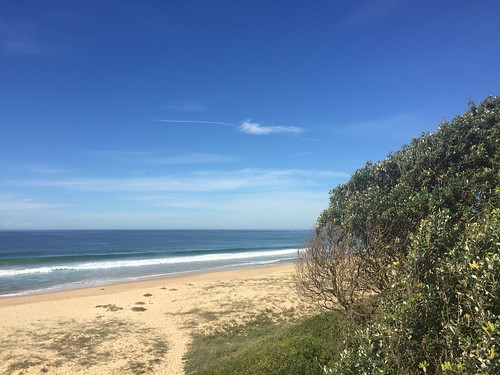
The pictures do not do it justice. On the land side the garden is thoroughly overexcited with hibiscus flowers and rainbow lorikeets and needs to take a calming breath. Climb over the dunes and Diamond Beach is a long wild golden crescent of sand with perfect emerald rollers. The sea is indigo near the horizon and the palest, clearest green where it covers the sand like mercury across glass to make a mirror for the sky. At night the Milky Way is a river of light.
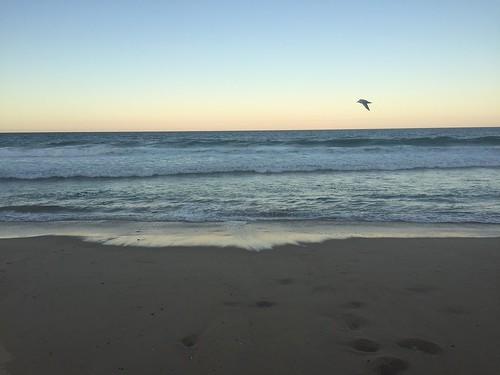
It doesn’t matter that we never came here with our parents. It is every beach holiday we ever had with them and each other. We are all trying to show up and be in the moment for one another and although I was joking when I tweeted a shadow-selfie with the caption “the artist is present,” I am noticing for the first time Abramovic’s double meaning: being present is the art. Don’t just do something, stand there.
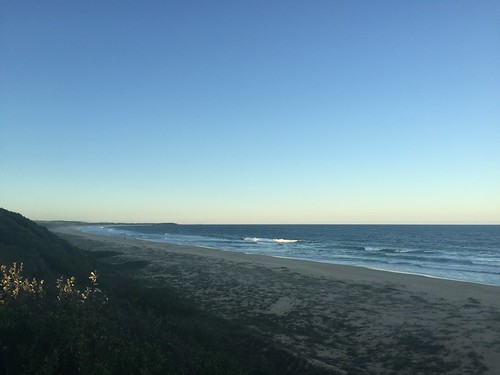
Our parents were flawed humans but they left us in no doubt that we were loved. They dragged us to kite festivals and hot air ballooning weekends and zoos and observatories and science museums and Indian and Thai restaurants (pretty exotic in the 1980s). Even though we’re atheists, even though the ashes are not even really the last of them, just more of what they left behind like clothes, even though there isn’t really any such thing as closure, it feels okay to be together here in this beautiful place. At sunset we’ll let them go into the sea, and we’ll build a big fire on the sand, and we’ll sit around it and laugh a bit and cry a bit while the Southern stars come out.
I had a pretty Gothically terrible week for various reasons beyond anyone’s particular control, mostly to do with generational inequity and centuries of systemic oppression. The least of it was that my trainer Facebooked a picture of me jumping Sam in which I’d lost my balance and caught him in the mouth. Salome insisted it was just a bad moment. I argued that I have learned nothing in all these years and am wasting my trainers’ time and ruining my good horse.
Salome got up an hour early this morning so she could bring her camera to my riding lesson and get better pictures of us. I love her so much right now I can hardly stand it. From such small kindnesses to one another we will build a less sucky world.
(Apparently my blog is just 24/7 schmaltz these days. I’m not sorry.)
…our deepest wants can never be fulfilled: our wants for youth, for a halt to aging, for the return of vanished ones, for eternal love, protection, significance, for immortality itself.
One night she watched the tram light coming towards her, the rails gleaming, the road slick with rain. The trams had been a little adventure in the beginning but now they were the emblem of the hard machine of her days. I could step out in front of it, she thought. That would put an end to the misery and the loneliness and the feeling that every day would be like this forever. It would hurt, she supposed. But if she was lucky it would all be over in a second. In the moment she stood with that choice, she was free of everyone else in the world…
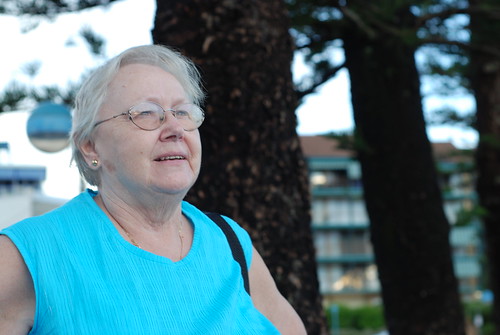
My mother was a genius
My father commanded respect
When they died they left no instructions, just a legacy to protect
Death doesn’t discriminate between the sinners and the saints
It takes and it takes and it takes
And we keep living anyway
We rise and we fall and we break and we make our mistakes
And if there’s a reason I’m still alive
When everyone who loves me has died
I’m willing to wait for it
I’m willing to wait for it
I had a meeting Friday morning with a man who does Silicon Valley liaison for Australian startups.
“I first came here to visit SGI when I was working at a manufacturing company called Wormald,” he said.
“Wormald, huh?” I said. “Did you know Robin Chalmers?”
“Of course I knew Robin!” He said that Dad was the first management theorist he’d met, and described Dad’s model of companies plateauing when their products were commoditized, and needing to find new products their factories could make in order to achieve new growth. The Innovator’s Dilemma, in other words, but worked out from scratch five years before that book was first published.
I remember having the same conversation with Dad myself. It was in the early 1990s, which was probably Peak Dad. I was at uni, flailing around, trying to figure out who I was and what I was going to be. He was running the factory, building the fire systems for the Collins Class submarines and thinking deeply about Australian manufacturing and competitiveness. We talked endlessly about everything: astronomy, Cantor’s diagonal argument, Christianity, geopolitics, John Donne, Martin Gardner, maths. He was unbelievably patient with me, and loving and funny and thoughtful and silly and wise.
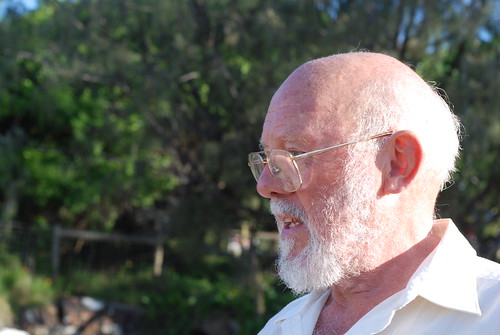
I’m very grateful for the reminder of what he was like then, even if it did hit me like a bullet in the chest. I miss him so much.